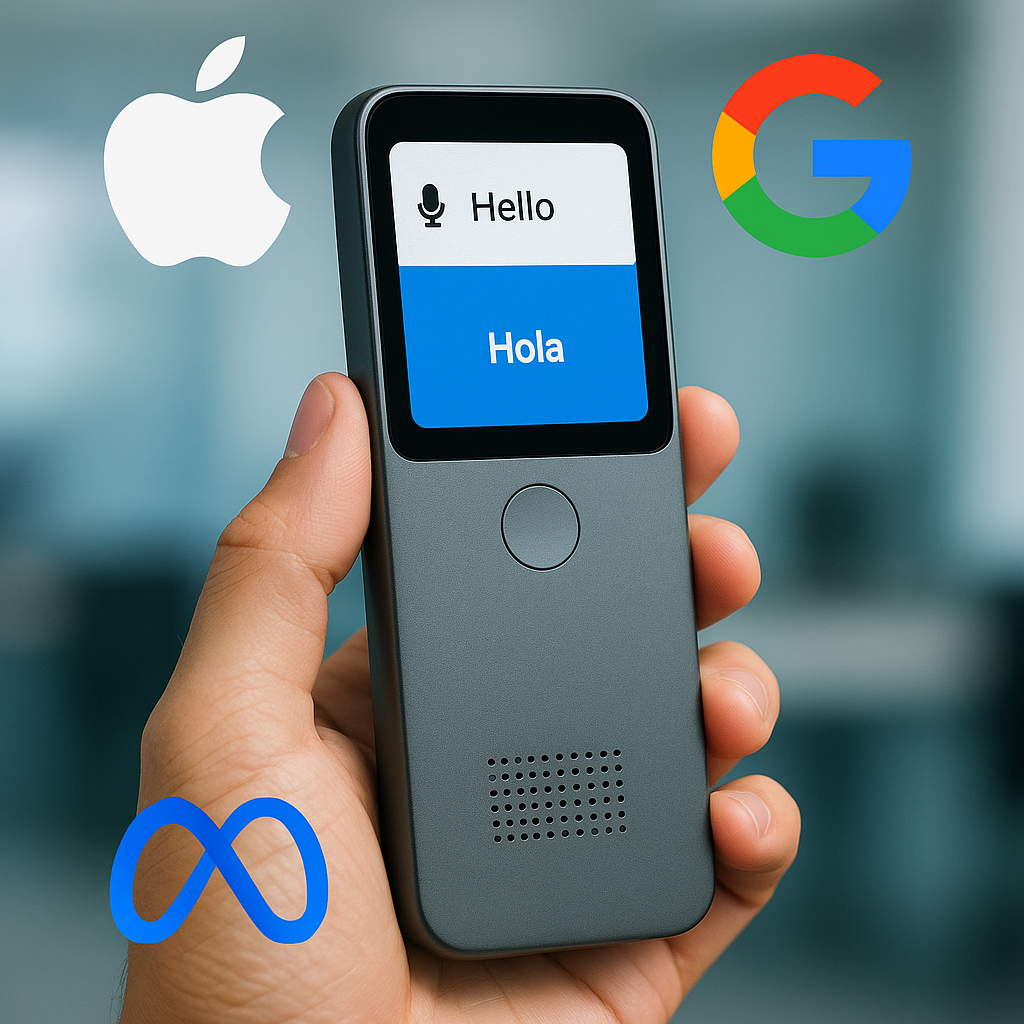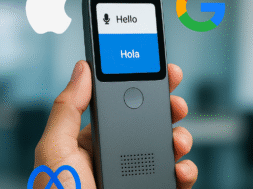
Breaking the Language Barrier: Apple, Google & Meta Race to Build Real-Time Universal Translators
For decades, sci-fi series like Star Trek and novels such as The Hitchhiker’s Guide to the Galaxy envisioned universal translators — futuristic devices that could instantly convert one language into another. What once belonged to the realm of fiction is now becoming a reality.
During its latest iPhone event, Apple showcased a dream scenario for travelers: an English-speaking tourist buying flowers in a Spanish-speaking country. While the florist spoke in Spanish, the tourist heard a fluent English translation in her AirPods — almost simultaneously.
This live demo wasn’t just a marketing stunt. It introduced Live Translation on the new AirPods Pro 3, priced at $250 and launching next week. The feature will also roll out as a software update for AirPods Pro 2 and AirPods 4. With this, users can hear real-time translations in French, German, Portuguese, and Spanish — seamlessly bridging conversations across languages.
Even more exciting, when two people wear AirPods, their conversations can be translated both ways in real time, making cross-cultural communication smoother than ever.
Industry experts see this as a milestone in Apple’s broader artificial intelligence strategy, powered by Apple Intelligence, the company’s AI suite available on newer iPhones. Analysts believe this could drive mass upgrades among users who want cutting-edge AI-powered communication.
But Apple isn’t the only tech giant in the race.
-
Google recently unveiled Voice Translate on its Pixel 10 phones, a feature that translates conversations during calls while preserving the speaker’s voice tone and inflections.
-
Meta launched Ray-Ban Meta smart glasses, equipped with real-time translation that speaks through built-in speakers and displays transcriptions on connected phones. A newer model with an integrated lens display is expected soon.
-
OpenAI is also developing advanced voice assistants with fluid translation, aiming to merge conversational AI with real-time multilingual interaction.
The rise of AI-powered translation is already disrupting industries. A Microsoft-backed study revealed that translators and interpreters are among the most vulnerable professions to automation, with nearly 98% of their tasks overlapping with AI capabilities.
Meanwhile, dedicated translation device makers like Pocketalk and Vasco Electronics argue that accuracy, privacy, and linguistic expertise still give their products an edge. Pocketalk supports 95 languages, far surpassing Apple’s initial five. Vasco is even working on voice-mimicking features similar to Google’s technology.
Despite limitations, Apple’s massive user base — shipping over 18 million AirPods in just the first quarter of this year — means its entry could push real-time translation technology into the mainstream.
Beyond tourism, experts stress that universal translation has the power to transform education, healthcare, and global workplaces, where overcoming language barriers is critical.
“This is not just about travel convenience,” said Pocketalk’s U.S. general manager. “It’s about breaking down the friction of language where understanding truly matters.”













